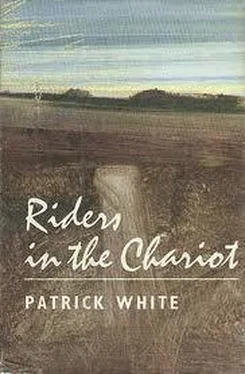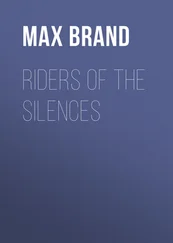It is doubtful whether any rich, landowning gentleman of the period would have admitted to his house's being more than _necessary__ or _practical__. Material objects were valued for their _usefulness__; if they were also intended to _please__, not to say _glorify__, it was commonly kept a secret. Only Norbert Hare, notoriously rash, had been heard to confess that the word _useful__ sounded to him less modest than humiliating. It was so intolerably grey and Australian. _Brilliant__ and _elegant__ were the epithets applicable to Norbert's aspirations, certainly to his most ambitious, his Pleasure Dome at Xanadu. Although by no means a sincere man, there was one point in his life at which sincerity conferred with taste and individualism. Xanadu was Norbert's contribution to the sum of truth, _brilliant__ and _elegant__ though the house was, created in the first place for its owner's _pleasure__. More would have admired it openly, if they could have felt the principles of their admiration to be sound. As it was, other monied gentlemen voiced more loudly than ever their enthusiasm for the _practical__ qualities of brick, and were persuaded that if the turrets of their purple mansions conformed to the pattern then condoned, nobody was going to accuse simple, down-to-earth sheepkeepers of acting in any way _flash__. Norbert, of course, did not keep sheep; his family might have laughed a little longer if he had. What he possessed was the fortune of his wine-merchant father, who died conveniently soon after his son's marriage, followed by several commercial brothers, trustful to the point of overlooking brilliance in a nephew. Norbert Hare inherited all, and thus comfortably endowed, set about leading the life of a country gentleman, such as he understood it from his reading and his travels, with none of the colonial encumbrances of sheep and acres which made the undertaking virtually impossible. What he required, and did, in fact, acquire, was an exquisite setting for his humours: the park of exotic, deciduous trees, the rose garden which his senses craved, pasture for the pedigree Jersey cows which would fill his silver jugs with cream, and stables for the horses which he drove himself with virtuosity-always greys, always four-in-hand. Thus surrounded and provided for, he was soon engrossed in living up to it all: advising on the drenching of a cow, or blistering of a horse (Mr Hare always knew), marshalling the cinerarias in extra brilliant ranks, interfering in his daughter's education, tearing down a wall, throwing out a wing, or running upstairs to jot down some thought which had occurred invariably to someone else before him. Despite the inevitable frustrations and migraines, life at Xanadu was never squalid. Out of its bower of rather unhappy exotic trees, out of its necklaces of rosebeds (the complexions of the blooms themselves protected by little parasols, which occupied practically the whole of the second gardener's time) aspired the lovely languid house. Round it they had trained wistaria, which at the height of the Hares' glory had not attained to vulgar opulence, and which never failed to please the eye in the same way as a feather boa on the right neck. In the spring its heavy, clovy scent invaded the great, greenish rooms; the marble staircase and the malachite urns dissolved beneath the onslaught, and the gilded mirrors led by subtle, receding stages far beyond the bounds of vision. The beauty of it antagonized some of those whom the Hares were in the habit of regarding as friends, to say nothing of the practical relatives, Ted Urquhart Smith, for instance, one of the cousins from Banjo Downs. "What becomes of all this flummery when Bert has blown the cash?" asked Ted on one occasion, indicating with calloused hand the drawing-room at Xanadu, in which it was almost impossible to tell where glass ended and light began. Addie, his sister, permitted herself a titter. His Cousin Eleanor hesitated. Grave even as a girl, life with her husband had made her graver still. "But I think Norbert's fortune is very prudently invested," she replied at last. "And then, a house is said to be an investment in itself." The wife of Norbert Hare seldom committed herself to positive opinions. Two positives in that relationship would have been intolerable. Once, in a fit of rage, the husband accused his wife of having become the mouthpiece of social cliché. "But it is what people prefer, Norbert," the poor woman protested, with vehemence for her. "Too much of what is unexpected is too upsetting." Before there was any call for it she began to wear, together with her apologetic amethysts, colours which suggested mourning. She would cough thinly, from behind an expression that invited inquiry into the state of her health, and visitors would take the hint, not that they really cared to discover how Mrs Hare's health was poor, but it provided a useful topic with which to hack a way into the tangles of conversation. She was not a snob, though there were many who accused her of it. She suffered, rather, from seeing the weak exposed to those whom she considered strong, and so, she would attempt to keep her friends separate, in compartments that she hoped might protect them from one another. She was completely unreal, and would impart temporarily to those of her equals with whom she came in contact something of her unreality. Yet she was not ineffective against the peacock colours of the stage at Xanadu, and provided the perfect, flat foil to her husband's fustian. The one cataclysmic reality to challenge her playing of the part was the presence of her daughter, but that was a fact she had failed from the beginning to embrace, an event the significance of which she had recoiled from relating to the play of life. After several years of tedious and frustrated childbirth, Mrs Hare had succeeded in having this little girl. They named her Mary, because the mother, fortunately, was too exhausted to think, and the father, who would have plunged with voluptuous excitement into the classics, or the works of Tennyson, to dredge up some shining name for a son, turned his back on the prospect of a daughter. So, Mary the latter became, but an innocent, Protestant one. Mrs Hare had soon taken refuge from Mary in a rational kindness, with which she continued to deal her a series of savage blows during what passed for childhood. "My darling must decide how best she can repay her parents for all she owes them," was amongst the mother's favourite tactics. "See all these beautiful things they have put here to be enjoyed, not smashed in thoughtless games." And, in answer to a frequent question: "Only our Father in Heaven will be able to tell my pet why He made her as He did." Paddling in her own delicious shallows, it never occurred to Mrs Hare to raise her eyes to God, except to call Him as a formal witness. She accepted Him-who would have been so audacious not to? — but as the creator of a moral and a social system. At that level, she could always be relied on to put her hand in her purse, to help repair vestments, or support fallen girls, and her name was published for everyone to read, on a visiting card, inserted in a brass frame, on the end of her regular pew. The little girl appeared gravely to accept the attitudes adopted by her mother, but was not genuinely influenced. Unattached, she drifted through the pale waters of her mother's kindness like a little, wondering, transparent fish, in search of those depths which her instinct told her could exist. Her father's attitudes were less acceptable than her mother's. Once in her presence-or she had been standing, rather, in the drawing-room alcove, apart, touching the waves of an emerald silk with which the day-bed would fascinate the fingers-her father had thrown down his cap with more than his usual violence, and shouted, "Who would ever have thought I should get a _red__ girl! By George, Eleanor, she is ugly, ugly!" Which-it sounded-was the worst that might be said.
Читать дальше












